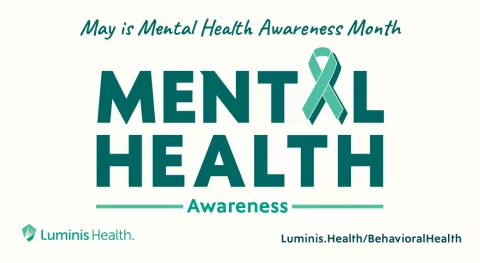by Luminis Health

Thank you.
It’s a simple, yet powerful, phrase. One you probably taught to your children as soon as they could talk. And sometimes you probably have to remind them to use it when they get a gift or a compliment.
But when you remind them to say thank you, you aren’t just teaching them to be nice. You’re teaching them how to be happy. Positive. Resilient.
Did you know that more and more research is shining a light on a connection between gratitude and greater happiness? Gratitude helps people feel more positive emotions. It helps to alleviate depression, improve health, build strong relationships and better manage adversity. Feeling grateful for even the smallest things in life can help you be more patient, too. That’s according to research from Northeastern University.
Grateful teens are also building emotional resilience because it helps them look on the bright side. This is especially important for teens, who often see things in black and white.
Looking for some guidance on how you can raise a grateful and generous teen? Here’s our advice.
- Walk your talk. It starts with you. Talk about what you are grateful for so your child has a good example to follow. Bonus – the more you do it, the more you’ll find reasons to give thanks.
- Start a gratitude conversation. Dinner is already the perfect time to catch up with your teen – why not ask them what they are grateful for? Feel free to come up with your own examples, as we mentioned earlier! Or consider making a gratitude jar.
- Support your teen during the hard times. Life can be challenging. If something difficult happens, acknowledge it. But then, bring them back to the present when they’re ready. Talk to them about what they can learn from the experience. How can they grow from it? Give them time and space – but also encourage them to view it as a learning experience.
- Encourage your teen to volunteer. Nothing beats real-world experience. When your child helps people in need, they will appreciate what they have even more.
Adolescents are naturally entitled. That’s simply the way their brain works. But you can help them focus and build their gratitude muscle and emotional strength. Think of your teen’s emotions as a rubber band that you can stretch. Like a rubber band, they will return to their original shape. Even when pushed to their limit. Keeping that “gratitude muscle” in shape will help them bounce back and carry on.
Want to start a gratitude conversation? Spread the positive vibes with our how-to guide on creating a gratitude jar.
 Ruth Milsten, LCSWC, is a mental health specialist with Anne Arundel Medical Group (AAMG) Mental Health Specialists. To schedule an appointment with her, call 410-573-9000.
Ruth Milsten, LCSWC, is a mental health specialist with Anne Arundel Medical Group (AAMG) Mental Health Specialists. To schedule an appointment with her, call 410-573-9000.
 Waseem Hussain, MD, is a primary care doctor with Doctors Community Medical Center.
Waseem Hussain, MD, is a primary care doctor with Doctors Community Medical Center.
Originally published Nov. 19, 2018. Last updated Nov. 4, 2020.



